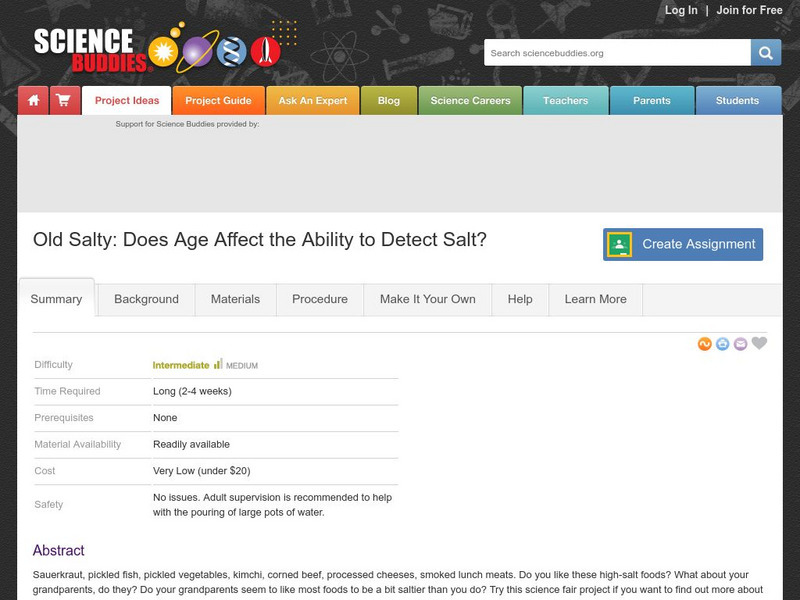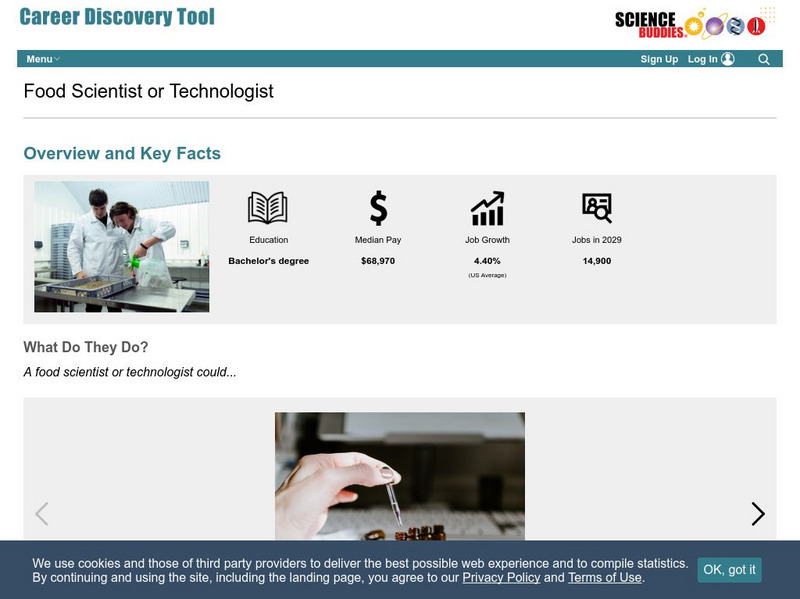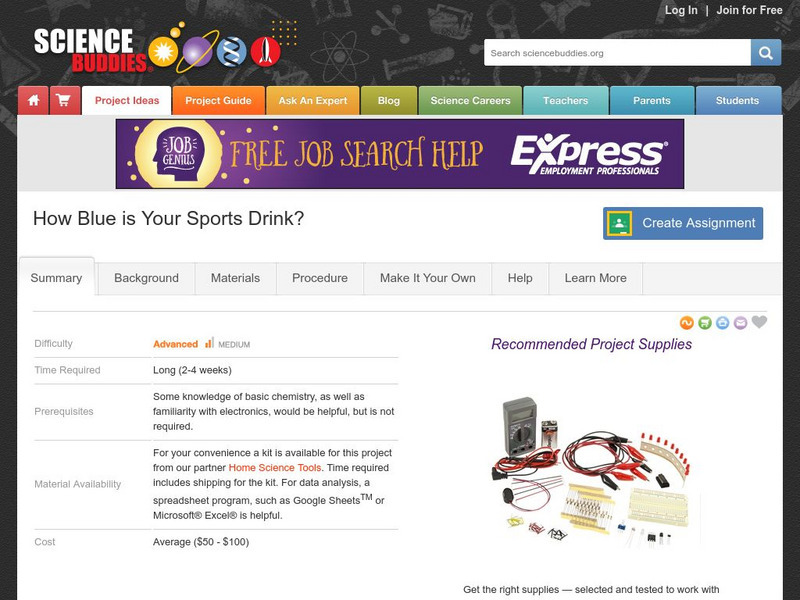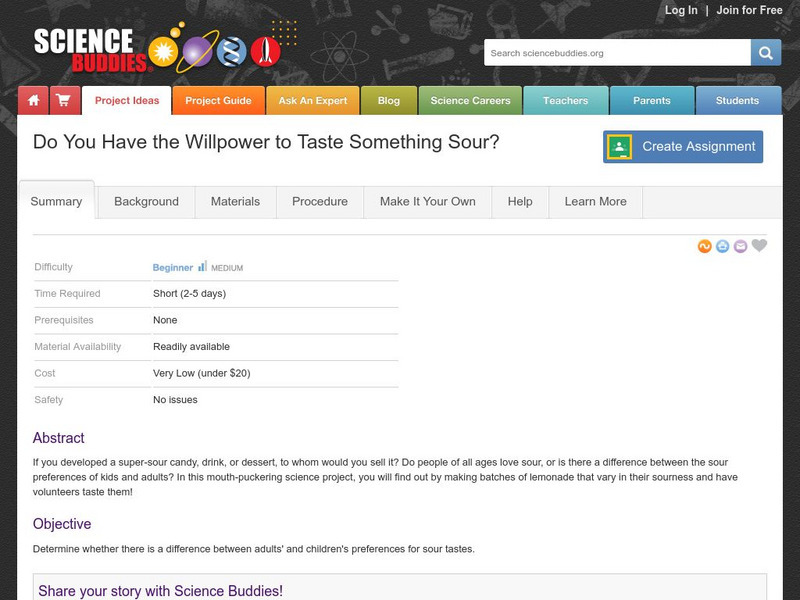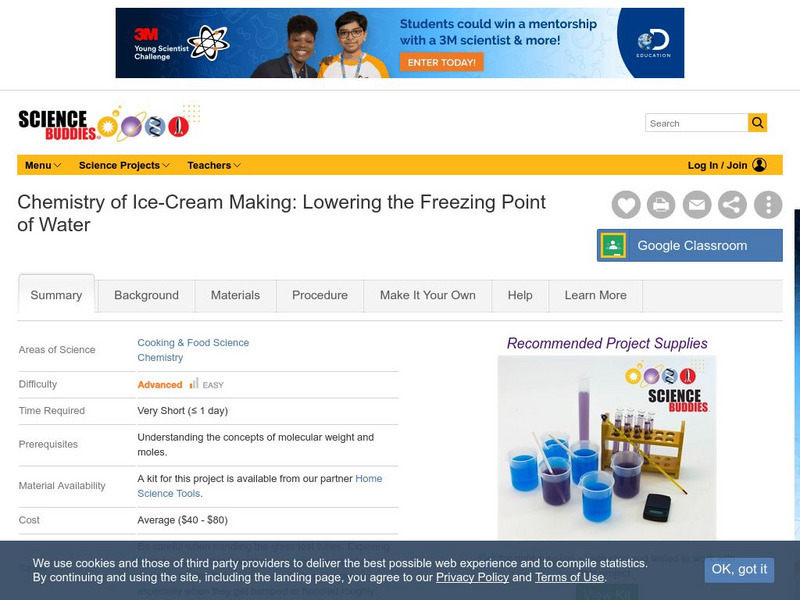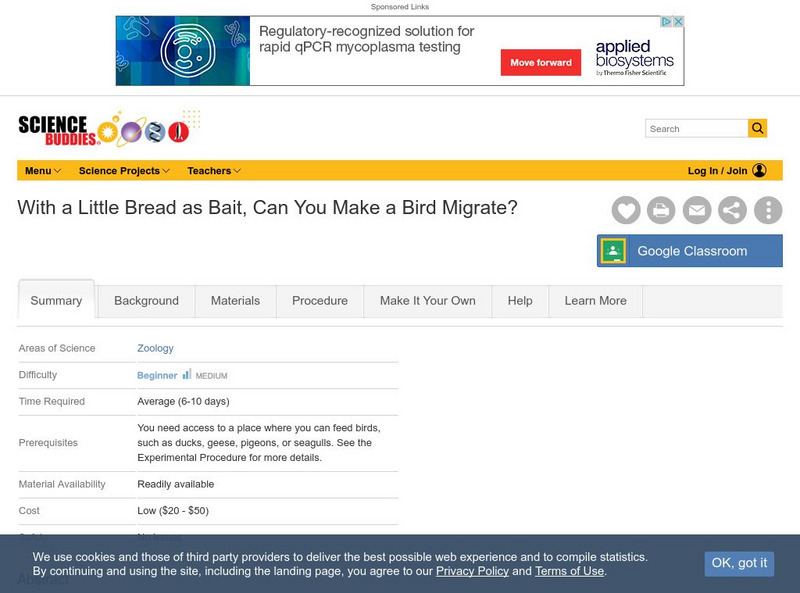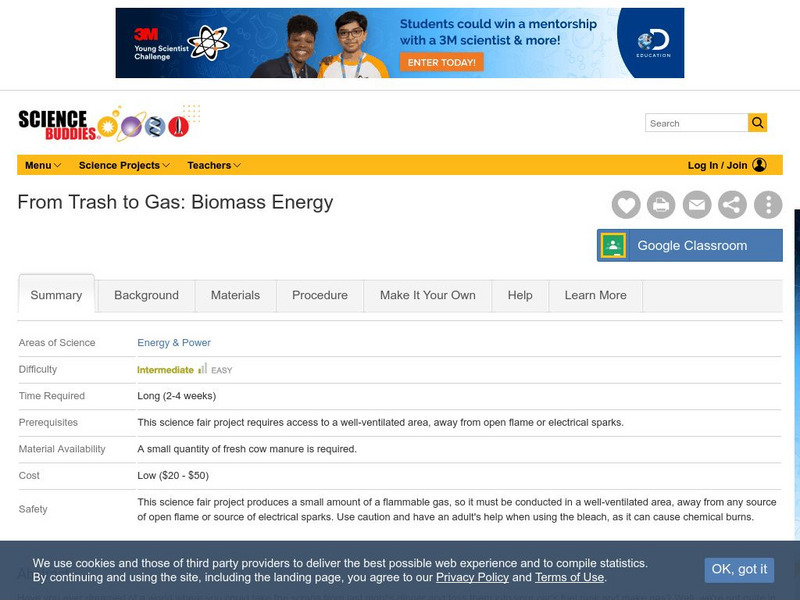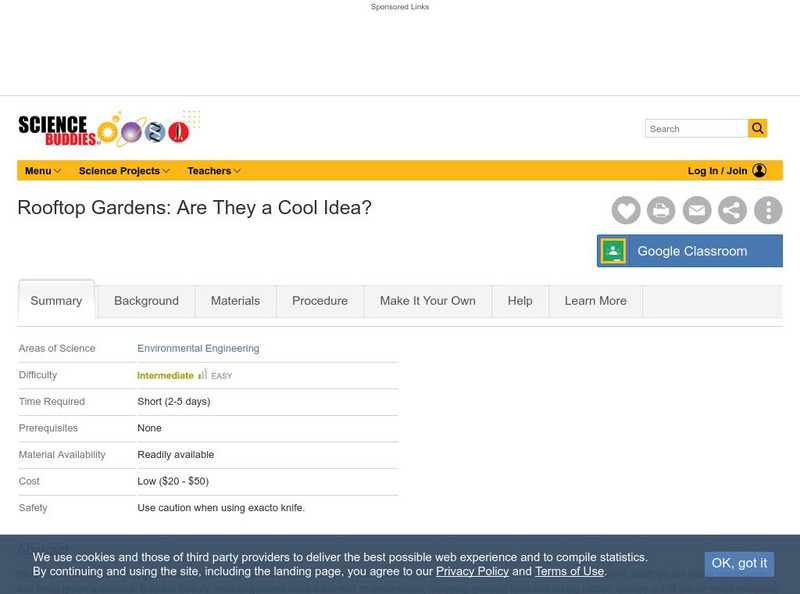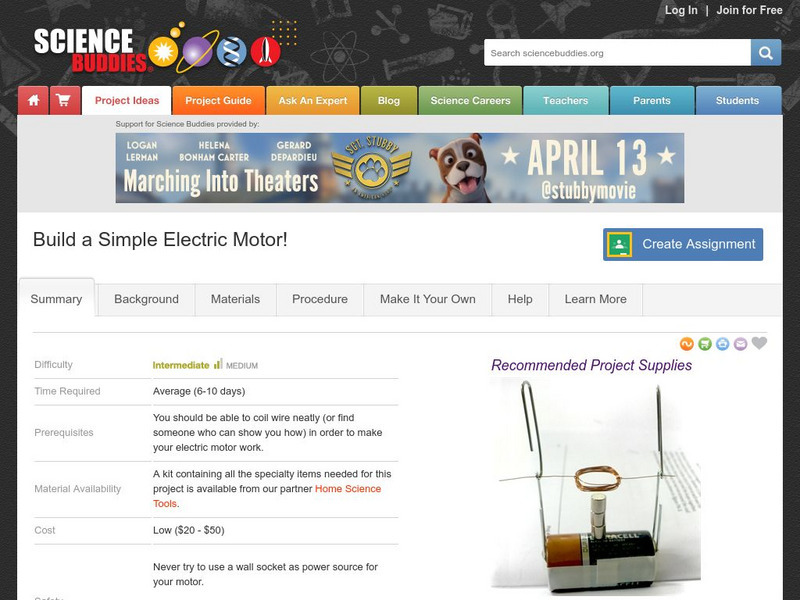Science Buddies
Science Buddies: How Can Tofu Pack Such a Flavorful Punch?
Spicy fried tofu. It's a delicious and savory main dish at many Asian restaurants. Stab a golden-brown piece, bite into it, and the juice inside rushes out, filling your mouth with rich flavors. Continue eating and you find the texture...
Science Buddies
Science Buddies: Egg Cellently Cooked Eggs: The Process of Soft Boiling an Egg
Sometimes on a busy day, it's hard to get things done. The rush to get things done can start first thing in the morning, when you're so busy getting ready and gathering your homework, that you barely have time for breakfast. It takes...
Science Buddies
Science Buddies: Project Ideas: How Much Sugar Is Really in That Soda?
In this science fair project, use a precision hydrometer to measure the amount of sugar in soda. The Science Buddies project ideas are set up consistently beginning with an abstract, objective, and introduction, followed by a section on...
Science Buddies
Science Buddies: Project Ideas: Simple Device to Measure the Strength of Tea
In this science fair project, measure the strength of tea, using plastic cups, a photoresistor, and a multimeter. The Science Buddies project ideas are set up consistently beginning with an abstract, objective, and introduction, followed...
Science Buddies
Science Buddies: Project Ideas: Bitter to Sweet: Sugar Changes in Ripening Fruit
In this science fair project, use a refractometer to measure changes in sugar content in ripening fruit. The Science Buddies project ideas are set up consistently beginning with an abstract, objective, and introduction, followed by a...
Science Buddies
Science Buddies: Old Salty: Does Age Affect the Ability to Detect Salt?
Sauerkraut, pickled fish, pickled vegetables, kimchi, corned beef, processed cheeses, smoked lunch meats. Do you like these high-salt foods? What about your grandparents, do they? Do your grandparents seem to like most foods to be a bit...
Science Buddies
Science Buddies: How Greasy Are Your Potato Chips?
One of America's favorite snacks is potato chips. Although potato chips are very tasty, some varieties are not very healthy for you. A typical 1-ounce (oz.) serving of a well-known national potato chip brand contains 150 calories, 90 of...
Science Buddies
Science Buddies: Career Profile: Food Scientist or Technologist
The role of food scientist or food technoloigst affects us all. Read about the responsibilities of the food scientist to ensure food safety in its production and processing. This Science Buddies site lays out the requirements needed to...
Science Buddies
Science Buddies: How Blue Is Your Sports Drink?
Do you read the list of ingredients in foods and drinks before you buy them at the grocery store? If you do, you may have noticed that many of the items that are blue in color have the same dye, called FD&C blue 1. In this chemistry...
Science Buddies
Science Buddies: Do You Have the Willpower to Taste Something Sour?
Do try this mouth-puckering science fair project to find out if people of all ages love sour tastes, or if there a difference between the sour preferences of kids and adults. You might be able to sell creations of your own based on your...
Science Buddies
Science Buddies: Lowering the Freezing Point of Water
When it comes to making ice cream, in order to make the mixture cold enough to freeze, you surround the container with ice and rock salt. This experiment helps you learn how the addition of salt (or other substances) affects the freezing...
Science Buddies
Science Buddies: Primary Productivity and Plankton
The oceans contain both the earth's largest and smallest organisms. Interestingly they share a delicate relationship linked together by what they eat. The largest of the ocean's inhabitants, the Blue Whale, eats very small plankton,...
Other
Baltimore Co. Public Schools: Chesapeake Bay Food Webs (Online Research Model)
Food webs lesson, which focuses on Chesapeake Bay habitats, integrates biological concepts with literacy knowledge and skills. Lesson directs students to answer the question, how does a human-caused stress placed on the environment...
Science & Plants for Schools
Science & Plants for Schools: Project Ideas
A website featuring project starter ideas to help students carry out hands-on practical investigations on plants. Some ideas featured on the page include exploring food waste, medicinal plants, enzymes in fruits, and much more! Project...
Cornell Lab of Ornithology
Habitat Network: Food
Find out about different birds' food preferences, and how those affect their habitats.
Science Buddies
Science Buddies: How Sweet It Is: Hummingbird Food Preferences
Do you like to watch hummingbirds? Have you ever wondered why there is specialty hummingbird food? What is it about the food that makes it so appealing? In this zoology science fair project, you will observe these remarkable creatures...
Science Buddies
Science Buddies: Gel Well: Which Additives Make the Strongest Gelatin?
Gelatin. It's hard to think of another food that is used as frequently on the dinner table as off. You can find it in all sorts of sweet foods, from ice cream, yogurt, and gummy bears, to marshmallows and yellow colorings for sodas. Off...
Science Buddies
Science Buddies: You Are What You Eat!
Thinking about improving your sports performance? Want to help friends and family make the most of their physical fitness activities? One factor to consider is food. Whether you realize it or not, what you eat does change your body. It...
Science Buddies
Science Buddies: Do You Love the Taste of Food? Find Out if You're a Supertaster
To supertasters, the flavors of foods are much stronger than to average tasters. This can explain why some people are more picky about their food than others, because they experiences tastes in a much stronger form. Find out if you are a...
Science Buddies
Science Buddies: With a Little Bread as Bait, Can You Make a Bird Migrate?
You might like to play in the autumn leaves and winter snow, but have you noticed that many birds don't like to stick around for the cold weather? And instead of the birds you're used to seeing in the warm months, your new feathered...
Science Buddies
Science Buddies: From Trash to Gas: Biomass Energy
Have you ever dreamed of a world where you could take the scraps from last night's dinner and toss them into your car's fuel tank and make gas? Well, we're not quite in "Back to the Future" yet, but in this energy science fair project,...
Science Buddies
Science Buddies: Rooftop Gardens: Are They a Cool Idea?
Around the world, rooftops are being transformed into living green expanses. Besides beauty, rooftop gardens have a number of advantages, including growing food and taking carbon dioxide out of the air while releasing breathable oxygen....
Science Buddies
Science Buddies: Spin Right 'Round With This Simple Electric Motor
If you put on clothes that were washed in a washing machine, rode in a car, ate food from a fridge, warmed up lunch in a microwave, or played a video game, you used an electric motor. Try this science fair project and you'll learn how to...
Science Buddies
Science Buddies: Got Iron? Measure the Concentration of Iron in Water
Iron is an important mineral essential for good health. Iron deficiency can be a problem. In this science fair project, use a simple iron test kit to measure the concentration of iron in water. This experiement is explained clearly and...
Other popular searches
- Science Project Food Apples
- Science Project Food Chain
- Science Project Food Waste
- Science Project Food Rice
- Food Science Fair Projects
- Science Project Food Decay
- Science Projects Food Chain







